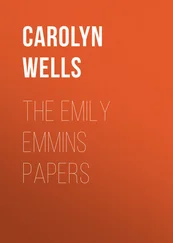Carolyn Wells - The Curved Blades
Здесь есть возможность читать онлайн «Carolyn Wells - The Curved Blades» — ознакомительный отрывок электронной книги совершенно бесплатно, а после прочтения отрывка купить полную версию. В некоторых случаях можно слушать аудио, скачать через торрент в формате fb2 и присутствует краткое содержание. ISBN: , Жанр: foreign_prose, на английском языке. Описание произведения, (предисловие) а так же отзывы посетителей доступны на портале библиотеки ЛибКат.
- Название:The Curved Blades
- Автор:
- Жанр:
- Год:неизвестен
- ISBN:http://www.gutenberg.org/ebooks/45622
- Рейтинг книги:4 / 5. Голосов: 1
-
Избранное:Добавить в избранное
- Отзывы:
-
Ваша оценка:
- 80
- 1
- 2
- 3
- 4
- 5
The Curved Blades: краткое содержание, описание и аннотация
Предлагаем к чтению аннотацию, описание, краткое содержание или предисловие (зависит от того, что написал сам автор книги «The Curved Blades»). Если вы не нашли необходимую информацию о книге — напишите в комментариях, мы постараемся отыскать её.
The Curved Blades — читать онлайн ознакомительный отрывок
Ниже представлен текст книги, разбитый по страницам. Система сохранения места последней прочитанной страницы, позволяет с удобством читать онлайн бесплатно книгу «The Curved Blades», без необходимости каждый раз заново искать на чём Вы остановились. Поставьте закладку, и сможете в любой момент перейти на страницу, на которой закончили чтение.
Интервал:
Закладка:
The starting of the music drowned further flow of the lady’s grievances.
II
A CLASH OF TONGUES
True to its reputation for calming the impulses of the turbulent spirit, the music soothed Miss Carrington’s ruffled temper, and she waxed amiable and even gay. Enthroned on her favorite red velvet chair, resplendent in an elaborately decorated gown of sapphire blue satin, with her bright auburn locks piled high and topped by an enormous comb of carved tortoise-shell, she dominated the little group and gave orders that must be obeyed.
She wore, among other jewels, a magnificent rope of pearls. So remarkable were these, that the Count, who had never seen them before, ventured to refer to them.
“Yes,” agreed Miss Carrington, “they are wonderful. Practically priceless, I assure you. It took my agent years to collect them.”
“And you grace an informal home evening with these regal gems?”
“Not usually, no. But you know, Count Charlier, pearls must be worn frequently to preserve their lustre. Laid away a long time, they grow dead and dull-looking.”
“You keep them here? Is it safe, think you?”
“I don’t keep them here all the time. Indeed, I got these from the Safe Deposit only this morning. I shall return them there in a few days. While here, I shall wear them all I can to liven them up.”
“You brought a lot of your other jewels, didn’t you, Aunt Lucy?” said Pauline, casually; “why did you? Are you going to a ball?”
“No: I wish to – to look them over and plan to have some reset.”
“But are they safe?” inquired the Count again; “do you not fear thieves?”
“No, we never have such things as robbery in Merivale Park. It is a quiet, well-behaved neighborhood.”
“But you have a safe?” went on the Count; “you take at least that precaution?”
“Oh, yes, I have a safe in my boudoir. There is really no danger. Count Charlier, would you like to hear me sing? Find one of my records, Gray.”
Miss Carrington’s singing voice had been a fine one and was still fair. She sometimes amused herself by making records for her phonograph, and Gray Haviland managed the mechanical part of it.
“Which one, Lady Lucy?” he asked, as he rummaged in the record cabinet.
“Any of those pretty love songs,” and Miss Carrington glanced coyly at the Count.
“Here’s a fine one,” and Haviland placed a disk in the machine.
“Listen,” he said, smiling; “don’t miss the introduction.”
The needle touched the record, and Miss Lucy’s laugh rang out, so clear and true, it was difficult to believe it was a recorded laugh and not a sound from the lady herself. Then the recorded voice said: “This song is one of Carr’s favorites, I’ll sing it for him.” And then, with only a few seconds’ interval, Miss Carrington’s voice sang, “Believe me, if all those endearing young charms.”
It was well sung, and a perfect record, so that the incident of the singer listening to her own voice was interesting in itself.
“Capital!” applauded the Count, as it was finished. “It is indeed pleasant to preserve one’s songs thus. May I not some time record my own amateur attempt?”
“Delighted to have you, Count,” said Haviland, cordially. “Come over some morning, and we’ll do up a lot of records.”
“Since when have you been master here, Gray?” said Miss Lucy, with fine scorn. “I will give the invitations to my own house, if you please! Count Charlier, if you will come to-morrow afternoon I will instruct Mr. Haviland to make the records.”
It was not so much the words as the manner of their utterance that was offensive, and Haviland set his lips in stifled anger. It was not at all unusual, this sort of rebuff, but he could not endure it as patiently as the two girls did. Haviland was a second cousin of Miss Carrington, and, while he lived with her in the capacity of a business secretary and general man of affairs, the post was a sinecure, for the services of her lawyer and of her social secretary left little for Haviland to do. His salary was a generous one and he was substantially remembered in her will, but he sometimes thought the annoying and irritating fleers he had to accept smilingly, were worth more than he was receiving. He was continually made to feel himself a dependent and an inferior.
These trials also fell to the lot of the two girls. Pauline, although her aunt’s heiress to the extent of half the fortune, the other half to go to an absent cousin, was by no means treated as an equal of Miss Carrington herself. It seemed to give the elder lady delight to domineer over her niece and in every possible way make her life uneasy and uncomfortable. As to the social secretary, Miss Frayne, she was scolded for everything she did, right or wrong.
Often had the three young people declared intentions of leaving Garden Steps, but so far none of them had made good the threat.
Vanity was the key-note of Lucy Carrington’s nature, and, knowing this, they could, if they chose, keep her fairly sweet-tempered by inordinate flattery often administered. This proceeding hurt their self-respect, jarred their tempers, and galled their very souls, but it was that or dismissal, and thus far they had stayed. Matters were nearing a crisis, however, and Haviland’s patience was so sorely strained that he was secretly looking for another position. Anita Frayne, whose pretty blonde doll-face belied a very fiery disposition, was on the verge of a serious break with her employer, and Pauline Stuart continually assured herself that she could not go on this way.
Pauline was the orphaned daughter of Lucy’s sister, and had lived with her aunt for many years. Carrington Loria, the son of another sister, was engaged in antiquarian research in Egypt, where he had been since his graduation as an engineer. He, too, was an orphan and had lived with Lucy in his younger days, and he and Pauline were equal heirs to their aunt’s wealth.
The father of the three Carrington sisters, having become angered at his two daughters who married against his wishes, had left his entire fortune to Lucy, his only remaining child. Thus her niece and nephew were her only direct heirs, and, save for some comparatively small bequests, the Carrington estate would eventually be theirs.
Pauline well knew that if she left her aunt’s roof it meant complete disinheritance, for Lucy Carrington was proud of her beautiful niece, and, too, was fond of her in her own way. But the ungovernable temper of the lady made her home an almost unbearable abiding-place.
Since childhood years Carrington Loria had lived there only during his college vacations; but had been back occasionally for short visits from his now permanent Egyptian occupation. He had always come laden with gifts of Oriental products, and the rooms at Garden Steps showed many rare specimens of cunning handiwork and rich fabrics and embroideries.
To break the awkward pause that followed Miss Carrington’s rude speech to Gray Haviland, Pauline picked up an antique scarab from a side table and drew the Count’s attention to its inscription.
He expressed a polite interest, but cast furtive glances at his hostess, as if afraid of a further outbreak.
Nor were his fears unjustified. Miss Carrington administered a scathing reproach to Pauline for intruding herself upon the Count’s attention, and bade her put aside the scarab and hold her tongue.
“Don’t speak to me like that, Aunt Lucy; I am not a child!” And Pauline, unable to control herself longer, faced her angry aunt with an air of righteous wrath.
“I’ll speak to you as I choose, miss! It is for you to mend your tone in addressing me! If you don’t, you may have cause to regret it. Count Charlier came here to see me, and I refuse to countenance your clumsy attempts to engage his interest in your silly babble!”
Читать дальшеИнтервал:
Закладка:
Похожие книги на «The Curved Blades»
Представляем Вашему вниманию похожие книги на «The Curved Blades» списком для выбора. Мы отобрали схожую по названию и смыслу литературу в надежде предоставить читателям больше вариантов отыскать новые, интересные, ещё непрочитанные произведения.
Обсуждение, отзывы о книге «The Curved Blades» и просто собственные мнения читателей. Оставьте ваши комментарии, напишите, что Вы думаете о произведении, его смысле или главных героях. Укажите что конкретно понравилось, а что нет, и почему Вы так считаете.












